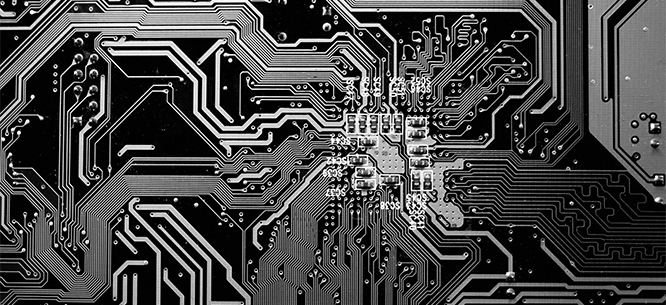Welcome to DU!
The truly grassroots left-of-center political community where regular people, not algorithms, drive the discussions and set the standards.
Join the community:
Create a free account
Support DU (and get rid of ads!):
Become a Star Member
Latest Breaking News
General Discussion
The DU Lounge
All Forums
Issue Forums
Culture Forums
Alliance Forums
Region Forums
Support Forums
Help & Search
General Discussion
Related: Editorials & Other Articles, Issue Forums, Alliance Forums, Region ForumsHave we lost the deeply democratic vision that animated the early internet?
from Dissent magazine:
Phantom Public
Astra Taylor ▪ Winter 2016

[font size="1"](Rosa Menkman / Flickr)[/font]
In 1964 the enigmatic Canadian philosopher Marshall McLuhan famously declared “the medium is the message.” At the same time he called media “extensions of man.” Fifty years ago these assertions were provocative enough to turn McLuhan into a countercultural celebrity. Today, it all seems somewhat unremarkable: who doesn’t feel their smartphone, for both better and worse, to be a part of them? The idea that media extend us—making us more connected and sociable, informed and empowered—is not just pervasive; it is essential to the promotion of the digital economy, or what theorist Jodi Dean has dubbed “communicative capitalism.”
Though McLuhan’s work fell out of fashion for a few decades, there has been renewed interest in his theories since the advent of the internet, which some say McLuhan—never afraid to make sweeping pronouncements or predications—anticipated. McLuhan imagined a vast electronic web encircling the globe, with cinema, television, radio, telephones, and the printing press enabling individuals to communicate with one another in a “global village.” “Today computers hold out the promise of a means of instant translation of any code or language into any other code or language,” wrote McLuhan in a particularly optimistic—today, we might say “techno-utopian”—passage in his groundbreaking 1964 book Understanding Media. “The computer, in short, promises by technology a Pentecostal condition of universal understanding and unity,” which would lead to the unfolding of a “general cosmic consciousness.”
Today you don’t have to be a card-carrying McLuhanite to believe that forms of media have their own inherent politics. Many academics and pundits have built their reputations arguing that the rise of the internet leads to the decentralization and democratization of communication, and of social life more broadly. While some contemporary critics have challenged this sort of “technological determinism,” the proposition that new media is irrelevant to understanding politics is equally problematic. We need more historically informed analyses of the way power operates in an era of digital networks and electronic media, and more pointed critiques of the ways the powerful purposefully obscure their influence over and through these channels.
The work of Stanford historian Fred Turner is a good place to start. As he explains in his fascinating and illuminating 2013 book The Democratic Surround: Multimedia and American Liberalism from World War II to the Psychedelic Sixties, McLuhan’s apparently pioneering thinking on media owes a large and largely forgotten debt to an earlier group of anti-fascist campaigners and well-meaning Cold Warriors. They were the first to articulate a vision of a media-driven democracy that, though never perfectly implemented, has suffused much of today’s popular thinking about the internet and social media. .............(more)
https://www.dissentmagazine.org/article/phantom-public-marshall-mcluhan-steward-brand-techno-utopians
InfoView thread info, including edit history
TrashPut this thread in your Trash Can (My DU » Trash Can)
BookmarkAdd this thread to your Bookmarks (My DU » Bookmarks)
1 replies, 702 views
ShareGet links to this post and/or share on social media
AlertAlert this post for a rule violation
PowersThere are no powers you can use on this post
EditCannot edit other people's posts
ReplyReply to this post
EditCannot edit other people's posts
Rec (12)
ReplyReply to this post
1 replies
 = new reply since forum marked as read
Highlight:
NoneDon't highlight anything
5 newestHighlight 5 most recent replies
= new reply since forum marked as read
Highlight:
NoneDon't highlight anything
5 newestHighlight 5 most recent replies
Have we lost the deeply democratic vision that animated the early internet? (Original Post)
marmar
Jan 2016
OP
arendt
(5,078 posts)1. I always despised Kevin Kelly and "Hacker of Fortune" (wired)
Arrogant, privileged assholes pushing an 1840s-Britain-style of destruction of a functioning social system in the name of laissez faire - except it was the government that created the technology (via DARPA) that made them rich and famous.
It was humbug from day one, but very lucrative humbug.